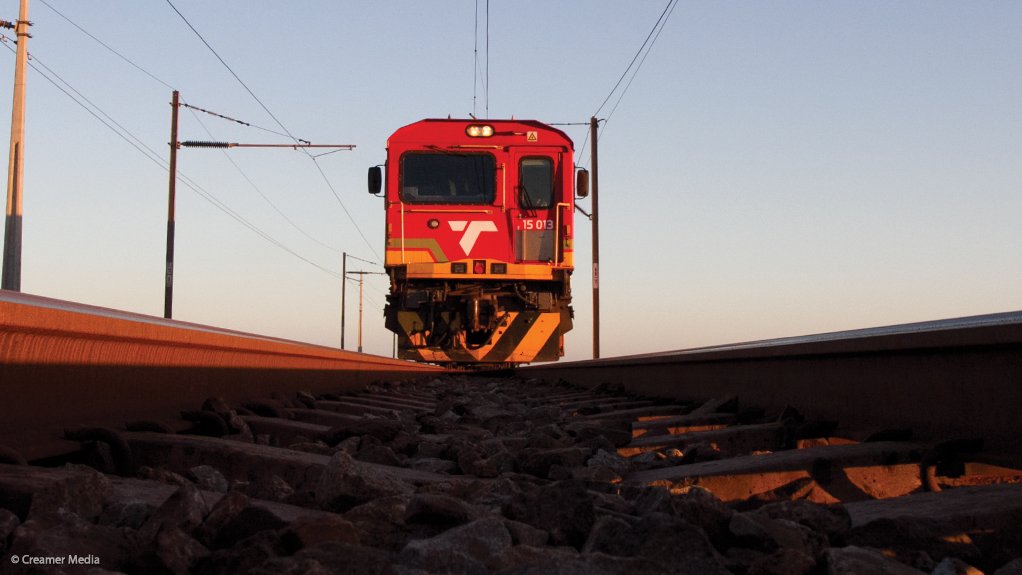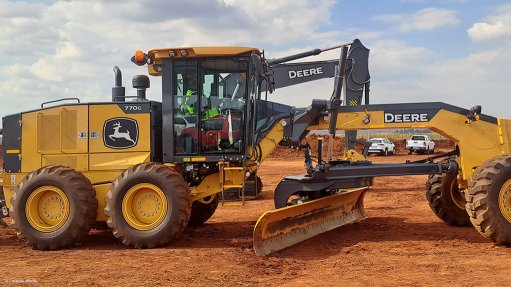Road-to-rail freight shift needs economic, environmental drivers – WWF-SA
While acknowledging that its inherent proclivity for the shift of freight from road to rail is owing largely to environmental considerations, World Wide Fund for Nature South Africa (WWF-SA) believes this trend is only likely to strengthen if supported by a strong economic case, delegates at the Southern African Transport Conference heard on Monday.
“As an environmental organisation, we have an interest in [encouraging the] shift of freight onto rail [for emission mitigation measures].
“But we also think that these solutions aren’t useful if that’s all they address… it has to also be an economic solution…and people will only move to rail freight once this service is [reliable] enough and serves businesses’ needs,” WWF-SA national climate change office Louise Naudé said during a presentation of the findings of a recent WWF-SA report on emissions in the freight sector.
The ‘Unpacking Freight Conditions and Mitigation Opportunities in the South African Context’ study, she explained, aimed to unpack in greater detail the contributions and mitigation opportunities applicable to various freight modes, transport typologies and commodity groups to identify the emission “hot spots” in the freight sector.
The analysis, which formed part of WWF-SA’s low carbon frameworks transport projects, suggested that the commodity group with the highest freight carbon footprint on all road corridors – based on an assessment of the quantities transported and the ease with which the product could be palletised or containerised – was processed foods, followed by mining products, beverages, chemicals, and wood and wood products.
It further found that the emissions intensity of freight transport differed “significantly” between transport modes, with airfreight proving the most emissions-intensive, followed by road then rail.
Using average emission factors, the report showed that road freight was “far more” emissions-intensive than rail, with rail only accounting for 8% of freight emissions, despite accounting for 30% of all freight activity.
As expected, emissions from road freight dominated, contributing 46% of overall freight emissions, while rural road freight accounted for close to 30% of emissions and metropolitan freight for some 20%.
Expounding on emission mitigation opportunities in the freight sector, Naudé said government planning and regulatory instruments, economic instruments, information instruments and technological instruments could be used to encourage a shift from road to rail and lessen the degree of carbon emissions from freight that remained on the country’s roads.
Among the planning instruments, enhanced infrastructure planning, as well as the planning of low-carbon electricity sources, would decrease emissions from freight, while regulatory instruments included the establishment of physical standards, such as emissions limits, vehicle and fuel standards and export restrictions.
The introduction of a carbon tax, fuel subsidies and taxes, congestion charging, toll roads and incentives for cleaner fuels were further economic instruments that could be considered.
Information-driven interventions could, meanwhile, include attempts to increase the awareness of real costs and alternatives, encourage “eco-driving” schemes and the institution of awareness campaigns, while, enhanced research and development on potential fuel efficiency improvements and cleaner fuel technologies could also mitigate freight emissions.
“In the South African context, the implementation of and uptake of these mitigation measures will, [however] depend largely on the planning, economic and regulatory instruments introduced by government,” read the report.
Naudé added that a key observation emerging from the report was that not all freight could be considered equal in terms of its inherent characteristics as well as the most appropriate way for it to be transported.
According to freight demand planning forecasts and associated data by State-owned freight group Transnet, goods most suited to being transported by road included perishable items, such as dairy and livestock, as well as deciduous fruit, pharmaceuticals and fast-moving consumer goods.
The data also suggested that a portion of agricultural products, liquid fuels and some mining products be transported by road, while the remainder was better suited to rail freight.
Bulk liquids, other mining products, cement, chemicals and intermodal products were more suited to rail freight, while the bulk of export coal, export iron-ore, export manganese and domestic coal were highly suited to being shipped by rail.
“This analysis is not unexpected, but highlights the fact that not all freight can be considered in the same way. It further serves to identify target sectors for mitigation instruments and measures,” WWF-SA outlined.
Comments
Press Office
Announcements
What's On
Subscribe to improve your user experience...
Option 1 (equivalent of R125 a month):
Receive a weekly copy of Creamer Media's Engineering News & Mining Weekly magazine
(print copy for those in South Africa and e-magazine for those outside of South Africa)
Receive daily email newsletters
Access to full search results
Access archive of magazine back copies
Access to Projects in Progress
Access to ONE Research Report of your choice in PDF format
Option 2 (equivalent of R375 a month):
All benefits from Option 1
PLUS
Access to Creamer Media's Research Channel Africa for ALL Research Reports, in PDF format, on various industrial and mining sectors
including Electricity; Water; Energy Transition; Hydrogen; Roads, Rail and Ports; Coal; Gold; Platinum; Battery Metals; etc.
Already a subscriber?
Forgotten your password?
Receive weekly copy of Creamer Media's Engineering News & Mining Weekly magazine (print copy for those in South Africa and e-magazine for those outside of South Africa)
➕
Recieve daily email newsletters
➕
Access to full search results
➕
Access archive of magazine back copies
➕
Access to Projects in Progress
➕
Access to ONE Research Report of your choice in PDF format
RESEARCH CHANNEL AFRICA
R4500 (equivalent of R375 a month)
SUBSCRIBEAll benefits from Option 1
➕
Access to Creamer Media's Research Channel Africa for ALL Research Reports on various industrial and mining sectors, in PDF format, including on:
Electricity
➕
Water
➕
Energy Transition
➕
Hydrogen
➕
Roads, Rail and Ports
➕
Coal
➕
Gold
➕
Platinum
➕
Battery Metals
➕
etc.
Receive all benefits from Option 1 or Option 2 delivered to numerous people at your company
➕
Multiple User names and Passwords for simultaneous log-ins
➕
Intranet integration access to all in your organisation




















